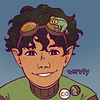Take a photo of a barcode or cover
255 reviews for:
Leggere pericolosamente. Il potere sovversivo della letteratura in tempi difficili
Azar Nafisi
255 reviews for:
Leggere pericolosamente. Il potere sovversivo della letteratura in tempi difficili
Azar Nafisi
I enjoyed this for the most part. I like how the author navigates politics and idealogy through literature. I like how seamlessly she can relate current events and polarization in the US to her experience with the Islamic Revolution in Iran.
Where this book disappointed me was the editing / fact-checking of the written pieces she uses throughout. One example: in talking about the lies told to young men about war, she brings up Wilfred Owen's poem 'Dulce et Decorum est', but mentions meeting an enemy shoulder, which is not in that poem at all. She then quotes a section about this enemy shoulder, which I immediately recognized as being from a completely different Owen poem, 'Strange Meeting". While the two poems are both about war, the cover different ground, one being about young men being duped into war with promises of glory, while the other is more about how soldiers on both sides are basically the same people. I'm not blaming the other on this one. These things should have been caught in editing.
Where this book disappointed me was the editing / fact-checking of the written pieces she uses throughout. One example: in talking about the lies told to young men about war, she brings up Wilfred Owen's poem 'Dulce et Decorum est', but mentions meeting an enemy shoulder, which is not in that poem at all. She then quotes a section about this enemy shoulder, which I immediately recognized as being from a completely different Owen poem, 'Strange Meeting". While the two poems are both about war, the cover different ground, one being about young men being duped into war with promises of glory, while the other is more about how soldiers on both sides are basically the same people. I'm not blaming the other on this one. These things should have been caught in editing.
inspiring
reflective
slow-paced
challenging
emotional
inspiring
reflective
slow-paced
challenging
informative
slow-paced
hopeful
informative
reflective
slow-paced
Introspective and validating. Azar Nafisi offers an intimate and personal view of why reading fiction is important to freedom of ideas.
challenging
emotional
informative
slow-paced
PERFECTION! 15/10 STARS!
Do yourself a favour and read this book. Read it slowly, letter by letter. Write down your thoughts. What do you agree with? What do you not agree with? What does each book tell you? Have you read them?
It will take time and thoughts.
One of the greatest literature books I have had the pleasure to read.
Do yourself a favour and read this book. Read it slowly, letter by letter. Write down your thoughts. What do you agree with? What do you not agree with? What does each book tell you? Have you read them?
It will take time and thoughts.
One of the greatest literature books I have had the pleasure to read.
challenging
emotional
informative
slow-paced
I have never read anything by this author, I simply saw the audiobook pop up on the coming soon section in Libby from my local library and loved the cover and the title, therefore I put a hold on it. As has been the case with most of the books I've been reading lately, I went into this not knowing what the book was about at all and therefore having no expectations. I am an American who knows very little about Iran, and the little that I did know before reading this I learned from Drew Binsky videos and "the media".
I was hesitant about the letter formula at first, and it was admittedly grating at times when the author addressed their father many times in rapid succession. The format did feel a little contrived since we the readers are not the father in question. Many references were thoroughly explained which would not be done in a letter to someone so close, but I appreciated that events and even the letter to Reagan were included.
I loved that the author pulled in so many important works throughout the book. Some were very widely known books like Fahrenheit 451 by Ray Bradbury (which I intend to re-read now with more experience since I haven't read this since high school), Their Eyes Were Watching God by Zora Neale Hurston, and A Handmaids Tale by Margaret Atwood, and some were books I'd never heard of such as The Satanic Verses by Salman Rushdie (which is now on my TBR). The author expertly crafts her lived experiences and those of her friends and family alongside the stories she has found in a myriad of diverse books to form a compelling narrative about how important reading (and writing) are in our world today. I was very impressed with this book and I read it in one sitting. She definitely spoiled some of the books that I haven't read, but I still look forward to exploring many of the novels she provided in the PDF that came with the book. I heartily reccomend this book!
I was hesitant about the letter formula at first, and it was admittedly grating at times when the author addressed their father many times in rapid succession. The format did feel a little contrived since we the readers are not the father in question. Many references were thoroughly explained which would not be done in a letter to someone so close, but I appreciated that events and even the letter to Reagan were included.
I loved that the author pulled in so many important works throughout the book. Some were very widely known books like Fahrenheit 451 by Ray Bradbury (which I intend to re-read now with more experience since I haven't read this since high school), Their Eyes Were Watching God by Zora Neale Hurston, and A Handmaids Tale by Margaret Atwood, and some were books I'd never heard of such as The Satanic Verses by Salman Rushdie (which is now on my TBR). The author expertly crafts her lived experiences and those of her friends and family alongside the stories she has found in a myriad of diverse books to form a compelling narrative about how important reading (and writing) are in our world today. I was very impressed with this book and I read it in one sitting. She definitely spoiled some of the books that I haven't read, but I still look forward to exploring many of the novels she provided in the PDF that came with the book. I heartily reccomend this book!
"Read Dangerously" features analyses of recent events compared to great works of literature. Nafisi's ideas are eye-opening, and she connects Iran, the United States, and literature in unexpected ways that seem obvious after she explains it. Written as letters to her father, the book is emotional, filled with love, and open. If you liked her other work or are interested in the power of literature, you'll want to check this book out.








